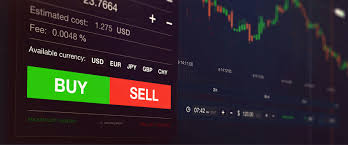Free Forex Trading Simulator Improve Your Skills

If you’re looking to hone your trading skills without the risk of losing money, a forex trading simulator free Trading Broker UG is an invaluable resource. In the world of forex trading, where currencies fluctuate rapidly, having a solid grasp of market trends and trading strategies is crucial. A forex trading simulator provides a safe environment to practice trading and understand the dynamics of the forex market.
The Importance of Forex Trading Simulators
Forex trading can be incredibly rewarding, but it also carries significant risks. Many new traders enter the market without fully understanding how it operates, which can lead to substantial losses. A forex trading simulator offers a risk-free way to develop your trading strategy and analyze market conditions in real-time without the fear of losing your hard-earned money.
What is a Forex Trading Simulator?
A forex trading simulator is a virtual platform that allows traders to practice buying and selling currencies without actual financial risks. This software mimics real market conditions and provides traders with virtual currency to make trades. These simulators often come with advanced charting tools, technical indicators, and access to historical data, which can greatly enhance the learning experience.
Benefits of Using a Forex Trading Simulator
- Practice Without Risk: You can make mistakes and learn from them without affecting your finances.
- Develop Trading Strategies: Test and refine your trading strategies in various market conditions.
- Real-Time Market Conditions: Get accustomed to the speed and volatility of live trading.
- Access to Tools: Use tools and resources that professional traders utilize to analyze the market.
- Confidence Building: Familiarize yourself with the trading platform and market dynamics to build confidence before trading with real money.
How to Choose a Forex Trading Simulator
Not all forex trading simulators are created equal. Here are some key features to look for when selecting a simulator:

1. Realistic Trading Environment
The simulator should closely mimic real market conditions, including live forex rates and news releases that may affect currency prices.
2. Educational Resources
Look for simulators that offer tutorials, webinars, and articles to help you learn different trading strategies and understand market fundamentals.
3. Variety of Currency Pairs
A good simulator should allow you to trade a variety of currency pairs, including major, minor, and exotic pairs.
4. User-Friendly Interface
The platform should be easy to navigate, making it more convenient for you to focus on trading without getting bogged down by complex features.
5. Performance Tracking
Choose a simulator that tracks your trades and provides analytics. This feature will help you evaluate your progress and make necessary adjustments to your trading strategies.

Getting Started with a Forex Trading Simulator
Once you’ve chosen a forex trading simulator, setting up your account is usually straightforward:
- Sign Up: Create an account with the simulator by providing some basic information.
- Fund Your Virtual Account: Some simulators require you to set up a virtual account with initial funds. Most give you a standard amount to start, allowing you to begin trading immediately.
- Familiarize Yourself: Take time to explore the platform. Understand how to place trades, set stop-loss orders, and utilize various trading tools.
- Start Trading: Begin by trading small amounts to see how you perform. As you gain confidence, you can gradually increase the size of your trades.
Common Mistakes to Avoid When Using a Forex Simulator
While using a forex trading simulator is an excellent way to practice, there are common pitfalls that traders should avoid:
- Being Overconfident: Just because you’re not risking real money doesn’t mean you should neglect risk management strategies.
- Neglecting Market Conditions: It’s easy to get complacent with virtual trading. Always consider current economic indicators and news that affect currency movements.
- Failure to Develop a Strategy: Trading without a plan can result in losses. Ensure you have a trading strategy in place before making trades.
- Ignoring Record Keeping: Keep track of your trades, strategies, wins, and losses to learn from your experiences.
Transitioning from a Simulator to Real Trading
Once you feel comfortable using a forex trading simulator and have developed a robust trading strategy, you might consider transitioning to live trading. Here are some tips to make that transition smoother:
- Start Small: Begin with a small investment to limit your risk while you adjust to trading with real money.
- Continue Learning: Stay informed about market news and trends and continue to refine your trading strategies.
- Implement Risk Management: Use stop-loss orders and other risk management tools to protect your capital.
- Stay Patient: Remember that trading is a long-term endeavor, and success won’t come overnight.
Conclusion
A forex trading simulator is an essential tool for anyone looking to succeed in the forex market. It provides a risk-free environment to learn trading strategies, develop skills, and gain confidence. Whether you are a novice or an experienced trader, taking advantage of these simulators can dramatically improve your trading proficiency. So, take the leap, choose a simulator that fits your needs, and start your journey towards becoming a successful forex trader!
Leave a reply